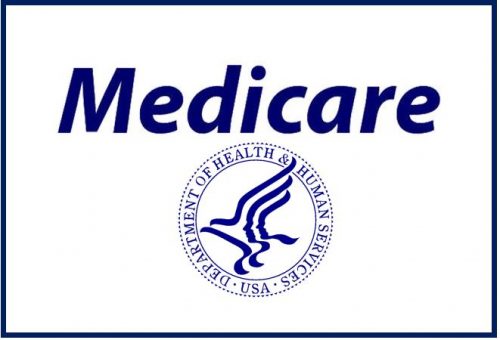
Medicare is a federal program that helps people age 65 and older, or those with specific disabilities, pay for their medical expenses. Medicare insurance is only available to U.S. Citizens or permanent residents who meet the eligibility requirements and live in the United States.
How Does It Work
If you’re eligible for Medicare, you’ll have a unique set of benefits depending on your type of coverage — Part A, Part B, Part C, and Part D — and your location (i.e., whether you are in an area where Medicare is optional, or whether you live in a “Medicare-for-All” state).
1. Part A-Hospital services
Part A covers inpatient hospital services, including professional nursing and custodial care. In addition, it covers certain home health services, emergency services (called “scope of service” in the U.S.), and emergency ambulance services says Medicare expert from Clearmatch Medicare. This comprehensive coverage includes surgical interventions, intensive care treatment, post-operative care, and many other daily health needs that affect mental or physical health.
2.Part B-Medical services
Part B provides outpatient medical treatment by several medical professionals (medical practitioners), such as physicians, nurse practitioners, and physician assistants. Most hospitals also provide their own Part B coverage for their patients who are Medicare eligible.
3. Part C-Combined medical and hospital coverage
The Part C plan combines the hospital and medical services Part A and B provided. This type of coverage is optional; those not eligible for Medicare can choose to sign up with this plan which would cover both the Part A (hospital) and the Part B (medical) services.
4. Part D-Prescription drug coverage
Part D provides coverage for prescription medications. It is available to those who have signed up for the Part A and B plans, but only if they choose to enroll. If enrolled, this plan allows Medicare recipients to fill their prescriptions at many different pharmacies that Medicare approves.
Who Is Medicare Insurance For
One must be 65 or older and a permanent resident of the United States to be eligible for Medicare. The eligibility requirements for using Medicare vary slightly depending on your coverage — Part A, Part B, Part C, or Part D.
1. Part A-Hospital services
To be eligible for Part A, one must have worked and paid into the system. This means you would have had Social Security taxes deducted from your income. (Self-employed Workers do not contribute but are eligible to enroll in Part A after they turn 65.)
2. Part B-Medical services
The status of your residency determines part B eligibility — you must be a permanent resident of the United States and have been living here for at least five consecutive years before enrolling in Part B. You must also prove that you are a citizen or permanent resident by showing a valid picture identification card and social security numbers.
3. Part C-Combined medical and hospital coverage
This combines the hospital and medical services the Part A and B plans provide. Enrolling in this coverage must be eligible for Parts A and B. If you are not eligible for Part A or B, then you are not eligible for Part C.
4. Part D-Prescription drug coverage
Enrolling in this coverage must be eligible for the Part A and B plans. If you are not eligible for either one, then you are not eligible for part D.
How Do Someone Enroll in Medicare Insurance
You can enroll in Medicare by visiting a Medicare office or a local Social Security office. You must bring documentation to prove what you have paid into the system so they can determine if you are eligible. This can include:
- Permanent Resident Cards
- Your Social Security card with your social security number
- Any pay stubs and tax forms showing the taxes that you paid into the system
- If eligible, they will issue you a card called a “Medicare Card.” The Medicare services that one uses depend on what type of coverage one chooses. If one chooses hospital services, they would need to use the Part A coverage; if one decides on medical services, they would need to use Part B, and so on.
Benefits of Medicare Insurance
Those elected to use the Medicare insurance program, specifically the Parts A and B coverage, are eligible to benefit from these essential benefits.
1. Peace of mind
Medicare guarantees that all beneficiaries will have medical assistance at any time and in any place in the United States, so you don’t have to worry about financial issues regarding medical health care. You won’t have to worry about paying for your prescription medication or seeking a hospital or a physician — you can schedule an appointment and see any doctor that Medicare covers. You wouldn’t even have to pay a fee for using their services. It is a good deal!
2. Choice of doctors
You can choose any doctor that Medicare covers as your primary care physician, which gives you the freedom to choose who you want to treat and who you want to treat your loved ones when it comes to medical issues. You can also seek specialists in many health care fields, such as cardiology, gynecology, and other fields of study.
3. Affordable coverage
Medicare benefits everyone, no matter what your health care needs are. Picking the right coverage for you is about assessing your health care needs and finding a plan that will work for your current situation. This plan can be changed at any time, so if you need to switch from one coverage to another or if you decide to add more coverage, you can do that quickly and easily.
In conclusion, Medicare is an essential health care insurance for U.S. Citizens and permanent residents who have worked long enough and paid into the system. It has many good aspects, including affordable medical care coverage, a no-claims record, prescription drug coverage, and tiered-coverage premiums based on income.
Interesting Related Article: “How Much Protection Do You Need? Calculating Your Life Insurance Coverage“

